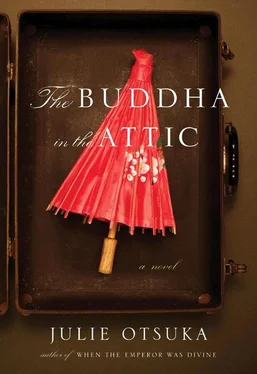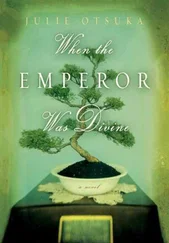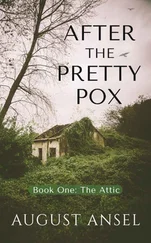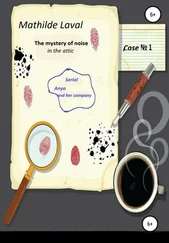SOME OF US on the boat were from Kyoto, and were delicate and fair, and had lived our entire lives in darkened rooms at the back of the house. Some of us were from Nara, and prayed to our ancestors three times a day, and swore we could still hear the temple bells ringing. Some of us were farmers’ daughters from Yamaguchi with thick wrists and broad shoulders who had never gone to bed after nine. Some of us were from a small mountain hamlet in Yamanashi and had only recently seen our first train. Some of us were from Tokyo, and had seen everything, and spoke beautiful Japanese, and did not mix much with any of the others. Many more of us were from Kagoshima and spoke in a thick southern dialect that those of us from Tokyo pretended we could not understand. Some of us were from Hokkaido, where it was snowy and cold, and would dream of that white landscape for years. Some of us were from Hiroshima, which would later explode, and were lucky to be on the boat at all though of course we did not then know it. The youngest of us was twelve, and from the eastern shore of Lake Biwa, and had not yet begun to bleed. My parents married me off for the betrothal money . The oldest of us was thirty-seven, and from Niigata, and had spent her entire life taking care of her invalid father, whose recent death made her both happy and sad. I knew I could marry only if he died . One of us was from Kumamoto, where there were no more eligible men—all of the eligible men had left the year before to find work in Manchuria—and felt fortunate to have found any kind of husband at all. I took one look at his photograph and told the matchmaker, “He’ll do.” One of us was from a silk-weaving village in Fukushima, and had lost her first husband to the flu, and her second to a younger and prettier woman who lived on the other side of the hill, and now she was sailing to America to marry her third. He’s healthy, he doesn’t drink, he doesn’t gamble, that’s all I needed to know . One of us was a former dancing girl from Nagoya who dressed beautifully, and had translucent white skin, and knew everything there was to know about men, and it was to her we turned every night with our questions. How long will it last? With the lamp lit or in the dark? Legs up or down? Eyes open or closed? What if I can’t breathe? What if I get thirsty? What if he is too heavy? What if he is too big? What if he does not want me at all? “Men are really quite simple,” she told us. And then she began to explain.
ON THE BOAT we sometimes lay awake for hours in the swaying damp darkness of the hold, filled with longing and dread, and wondered how we would last another three weeks.
ON THE BOAT we carried with us in our trunks all the things we would need for our new lives: white silk kimonos for our wedding night, colorful cotton kimonos for everyday wear, plain cotton kimonos for when we grew old, calligraphy brushes, thick black sticks of ink, thin sheets of rice paper on which to write long letters home, tiny brass Buddhas, ivory statues of the fox god, dolls we had slept with since we were five, bags of brown sugar with which to buy favors, bright cloth quilts, paper fans, English phrase books, flowered silk sashes, smooth black stones from the river that ran behind our house, a lock of hair from a boy we had once touched, and loved, and promised to write, even though we knew we never would, silver mirrors given to us by our mothers, whose last words still rang in our ears. You will see: women are weak, but mothers are strong .
ON THE BOAT we complained about everything. Bedbugs. Lice. Insomnia. The constant dull throb of the engine, which worked its way even into our dreams. We complained about the stench from the latrines—huge, gaping holes that opened out onto the sea—and our own slowly ripening odor, which seemed to grow more pungent by the day. We complained about Kazuko’s aloofness, Chiyo’s throat clearing, Fusayo’s incessant humming of the “Teapicker’s Song,” which was driving us all slowly crazy. We complained about our disappearing hairpins—who among us was the thief?—and how the girls from first class had never once said hello from beneath their violet silk parasols in all the times they had walked past us up above on the deck. Just who do they think they are? We complained about the heat. The cold. The scratchy wool blankets. We complained about our own complaining. Deep down, though, most of us were really very happy, for soon we would be in America with our new husbands, who had written to us many times over the months. I have bought a beautiful house. You can plant tulips in the garden. Daffodils. Whatever you like. I own a farm. I operate a hotel. I am the president of a large bank. I left Japan several years ago to start my own business and can provide for you well. I am 179 centimeters tall and do not suffer from leprosy or lung disease and there is no history of madness in my family. I am a native of Okayama. Of Hyogo. Of Miyagi. Of Shizuoka. I grew up in the village next to yours and saw you once years ago at a fair. I will send you the money for your passage as soon as I can .
ON THE BOAT we carried our husbands’ pictures in tiny oval lockets that hung on long chains from our necks. We carried them in silk purses and old tea tins and red lacquer boxes and in the thick brown envelopes from America in which they had originally been sent. We carried them in the sleeves of our kimonos, which we touched often, just to make sure they were still there. We carried them pressed flat between the pages of Come, Japanese! and Guidance for Going to America and Ten Ways to Please a Man and old, well-worn volumes of the Buddhist sutras, and one of us, who was Christian, and ate meat, and prayed to a different and longer-haired god, carried hers between the pages of a King James Bible. And when we asked her which man she liked better—the man in the photograph or the Lord Jesus Himself—she smiled mysteriously and replied, “Him, of course.”
SEVERAL OF US on the boat had secrets, which we swore we would keep from our husbands for the rest of our lives. Perhaps the real reason we were sailing to America was to track down a long-lost father who had left the family years before. He went to Wyoming to work in the coal mines and we never heard from him again . Or perhaps we were leaving behind a young daughter who had been born to a man whose face we could now barely recall—a traveling storyteller who had spent a week in the village, or a wandering Buddhist priest who had stopped by the house late one night on his way to Mt. Fuji. And even though we knew our parents would care for her well —If you stay here in the village , they had warned us, you will never marry at all —we still felt guilty for having chosen our own life over hers, and on the boat we wept for her every night for many nights in a row and then one morning we woke up and dried our eyes and said, “That’s enough,” and began to think of other things. Which kimono to wear when we landed. How to fix our hair. What to say when we first saw him. Because we were on the boat now, the past was behind us, and there was no going back.
ON THE BOAT we had no idea we would dream of our daughter every night until the day that we died, and that in our dreams she would always be three and as she was when we last saw her: a tiny figure in a dark red kimono squatting at the edge of a puddle, utterly entranced by the sight of a dead floating bee.
ON THE BOAT we ate the same food every day and every day we breathed the same stale air. We sang the same songs and laughed at the same jokes and in the morning, when the weather was mild, we climbed up out of the cramped quarters of the hold and strolled the deck in our wooden sandals and light summer kimonos, stopping, every now and then, to gaze out at the same endless blue sea. Sometimes a flying fish would land at our feet, flopping and out of breath, and one of us—usually it was one of the fishermen’s daughters—would pick it up and toss it back into the water. Or a school of dolphins would appear out of nowhere and leap alongside the boat for hours. One calm, windless morning when the sea was flat as glass and the sky a brilliant shade of blue, the smooth black flank of a whale suddenly rose up out of the water and then disappeared and for a moment we forgot to breathe. It was like looking into the eye of the Buddha .
Читать дальше












